10 Best Herbal Teas For Premenstrual Syndrome

Herbal teas have gained popularity as a natural remedy for managing premenstrual syndrome (PMS) symptoms due to their calming and soothing properties.
Commonly used herbs such as chamomile, ginger, and peppermint are known for their ability to ease cramps, reduce anxiety, and promote relaxation. Chamomile, in particular, contains compounds that may help regulate mood and reduce inflammation, making it a favored choice for many women experiencing PMS. Ginger tea is often recommended for its anti-inflammatory effects, which can alleviate menstrual cramps and nausea associated with PMS.
Incorporating these herbal teas into a daily routine can offer a gentle, holistic approach to managing the physical and emotional symptoms of PMS.
Table of Contents
- 1. Chaste tree (Vitex agnus-castus)
- 2. Stinging nettle (Urtica dioica)
- 3. Chamomile (Matricaria chamomilla)
- 4. Heartworts (Leonurus cardiaca)
- 5. Lemon balm (Melissa officinalis)
- 6. Fennel (Foeniculum vulgare)
- 7. German chamomile (Chamomilla recutita)
- 8. White water lily (Nymphaea alba)
- 9. Anise (Pimpinella anisum)
- 10. Rosemary (Rosmarinus officinalis)
1. Chaste tree (Vitex agnus-castus)

Vitex agnus-castus, commonly known as chasteberry, is a popular herbal remedy used to support women's hormonal health, particularly in managing symptoms of premenstrual syndrome (PMS).
This herb is believed to influence the pituitary gland, potentially regulating the production of luteinizing hormone, which in turn may help balance estrogen and progesterone levels. Studies suggest that chasteberry tea may alleviate common PMS symptoms such as mood swings, breast tenderness, and irritability. It is often recommended as a natural alternative to conventional treatments, though it is important to consult a healthcare provider before use, especially for those with underlying health conditions or taking other medications.
Regular consumption of vitex agnus-castus tea may offer a gentle and supportive approach to managing PMS symptoms over time.
2. Stinging nettle (Urtica dioica)

Urtica dioica, commonly known as stinging nettle, has been traditionally used in herbal teas to alleviate symptoms of premenstrual syndrome (PMS).
This plant is rich in nutrients such as iron, calcium, and antioxidants, which may help support hormonal balance and reduce bloating and mood swings associated with PMS. When brewed into a tea, stinging nettle is believed to have a calming effect on the body, potentially easing cramps and irritability. Some studies suggest that its high magnesium content may help regulate muscle contractions and reduce menstrual discomfort.
However, while anecdotal evidence supports its use, more scientific research is needed to fully confirm its efficacy for PMS relief.
3. Chamomile (Matricaria chamomilla)

Matricaria chamomilla, commonly known as chamomile, is a popular herbal tea used to alleviate symptoms of premenstrual syndrome (PMS).
It contains compounds such as apigenin, which may help reduce anxiety, inflammation, and muscle tension associated with PMS. Chamomile tea is often consumed as a mild sedative to promote relaxation and improve sleep quality during the menstrual cycle. Studies suggest that regular consumption of chamomile may help ease cramps, mood swings, and bloating in women experiencing PMS.
However, it is important to consult a healthcare provider before using chamomile, especially for those with allergies or taking other medications.
4. Heartworts (Leonurus cardiaca)
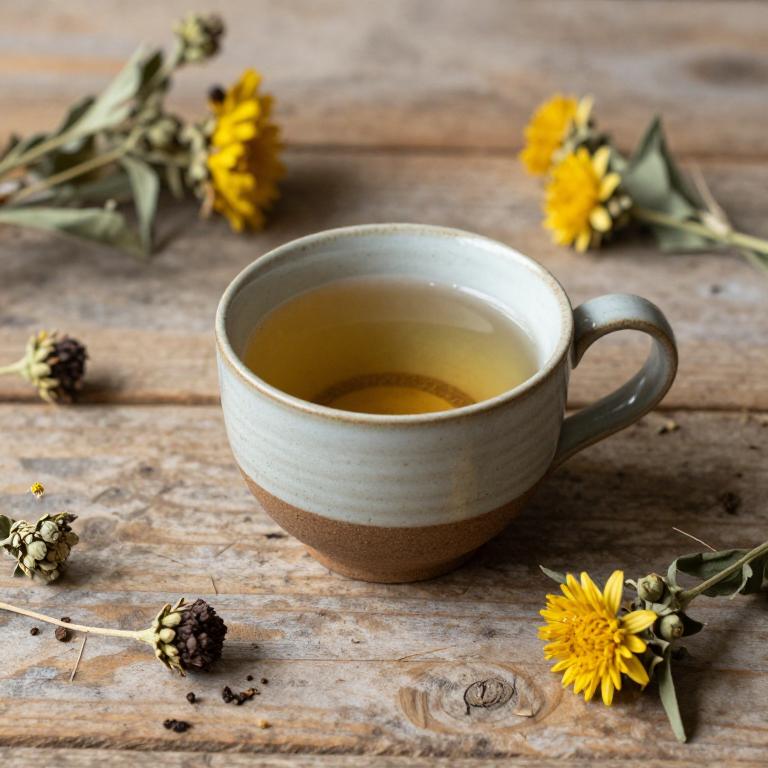
Leonurus cardiaca, commonly known as motherwort, has been traditionally used in herbal medicine to support women's health, including the management of premenstrual syndrome (PMS).
Herbal teas made from Leonurus cardiaca are believed to help alleviate common PMS symptoms such as anxiety, irritability, and bloating due to its mild sedative and antispasmodic properties. The plant contains compounds like flavonoids and tannins that may contribute to its calming effects on the nervous system and digestive tract. While scientific research on its efficacy for PMS is limited, many women find relief through regular consumption of motherwort tea as part of a holistic approach to menstrual wellness.
As with any herbal remedy, it is advisable to consult a healthcare provider before use, especially for those with existing medical conditions or who are pregnant.
5. Lemon balm (Melissa officinalis)
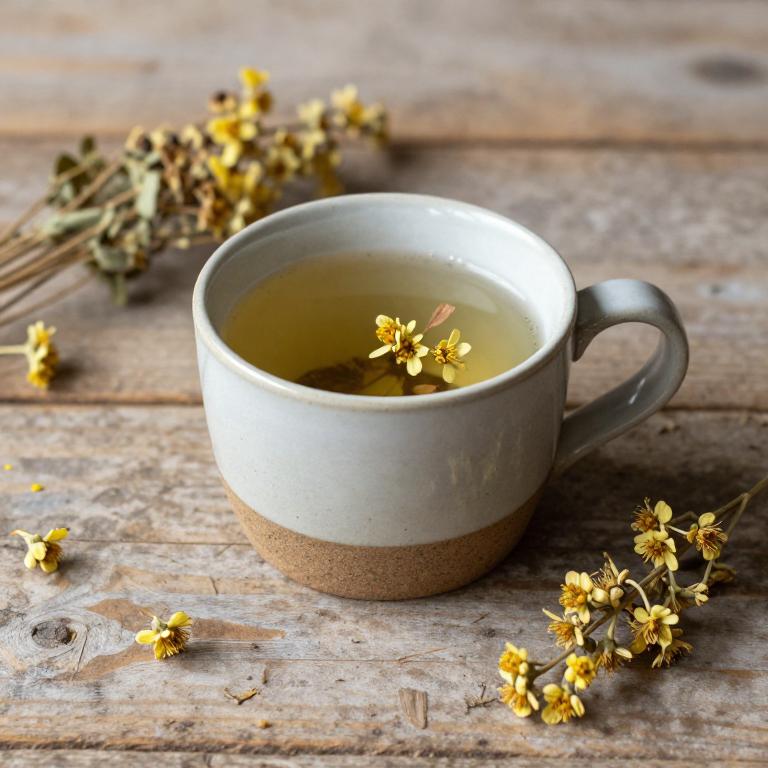
Melissa officinalis, commonly known as lemon balm, is a popular herbal remedy used to alleviate symptoms of premenstrual syndrome (PMS).
This herb contains compounds such as rosmarinic acid and flavonoids, which may help reduce anxiety, irritability, and mood swings associated with PMS. Drinking lemon balm tea can promote relaxation and improve sleep quality, both of which are often disrupted during the premenstrual phase. Studies suggest that its mild sedative effects may help ease the emotional and physical discomfort of PMS.
While it is generally considered safe, individuals should consult a healthcare provider before using lemon balm, especially if they are pregnant, nursing, or taking medications.
6. Fennel (Foeniculum vulgare)

Foeniculum vulgare, commonly known as fennel, is a herb widely used in herbal teas to alleviate symptoms of premenstrual syndrome (PMS).
The seeds of fennel contain compounds like anethole and estragole, which have mild estrogenic properties that may help balance hormonal fluctuations associated with PMS. Regular consumption of fennel tea can ease cramps, bloating, and mood swings that often accompany the menstrual cycle. It is generally considered safe when consumed in moderate amounts, though it should be avoided during pregnancy due to its potential effects on uterine contractions.
As with any herbal remedy, it is advisable to consult a healthcare provider before incorporating fennel tea into a PMS management routine.
7. German chamomile (Chamomilla recutita)
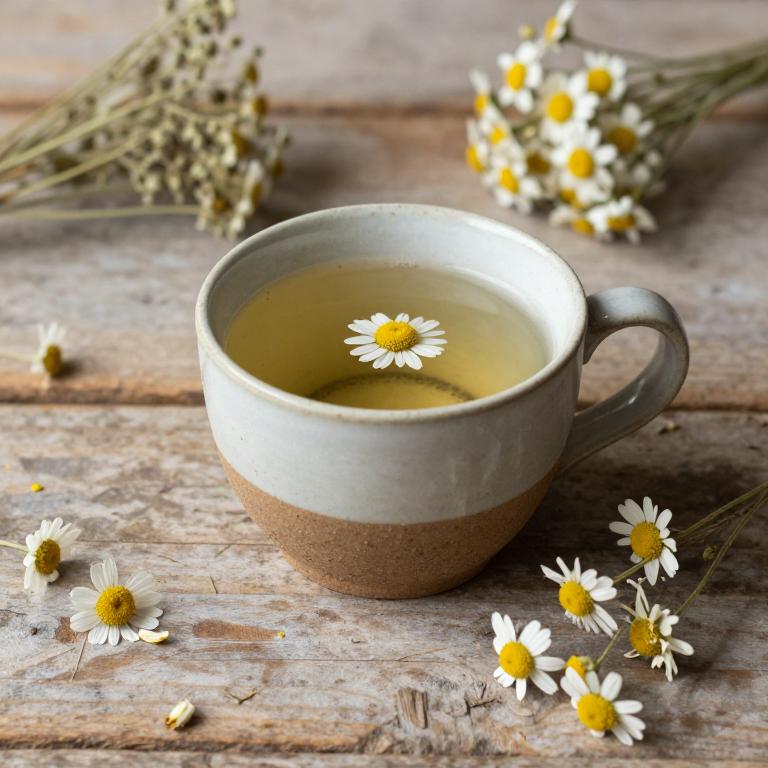
Chamomilla recutita, commonly known as German chamomile, has been widely used in herbal medicine for its calming and soothing properties.
Studies suggest that chamomile tea may help alleviate symptoms of premenstrual syndrome (PMS), such as bloating, mood swings, and irritability, due to its anti-inflammatory and anxiolytic effects. The essential oil in chamomile, particularly bisabolol and chamazulene, contributes to its ability to reduce stress and promote relaxation. Regular consumption of chamomile tea may support hormonal balance and ease menstrual discomfort.
However, it is advisable to consult a healthcare provider before using chamomile, especially for individuals with allergies or those taking medications.
8. White water lily (Nymphaea alba)
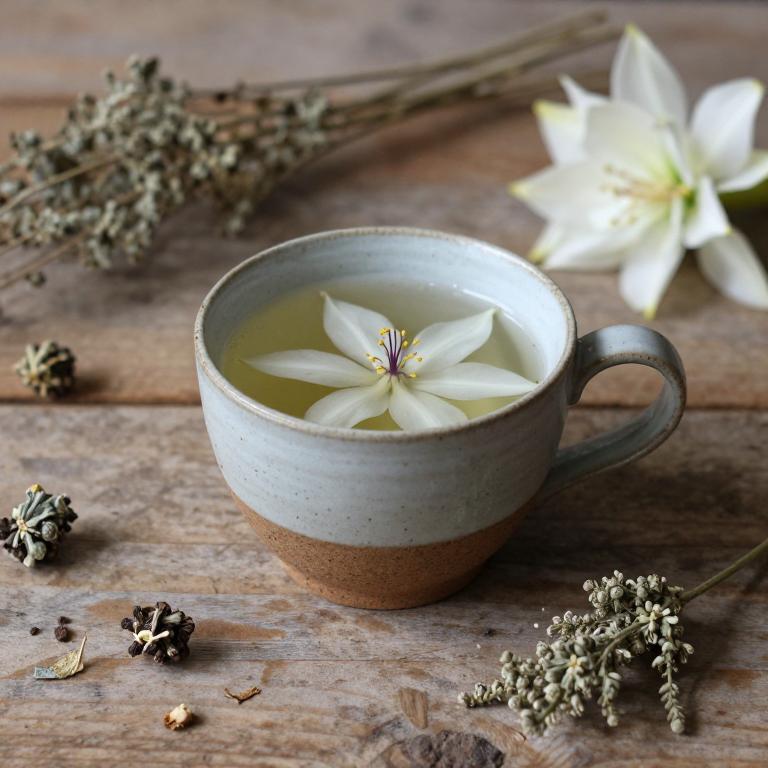
Nymphaea alba, commonly known as white water lily, has been traditionally used in herbal medicine for its potential soothing effects on the body.
Herbal teas made from Nymphaea alba are believed to help alleviate symptoms of premenstrual syndrome (PMS), such as bloating, mood swings, and irritability, due to their mild sedative and anti-inflammatory properties. The plant contains compounds like flavonoids and alkaloids that may support hormonal balance and reduce menstrual discomfort. Drinking Nymphaea alba tea regularly during the premenstrual phase may offer natural relief for women experiencing PMS symptoms.
However, it is advisable to consult a healthcare provider before using this herb, especially for those with existing medical conditions or who are taking other medications.
9. Anise (Pimpinella anisum)
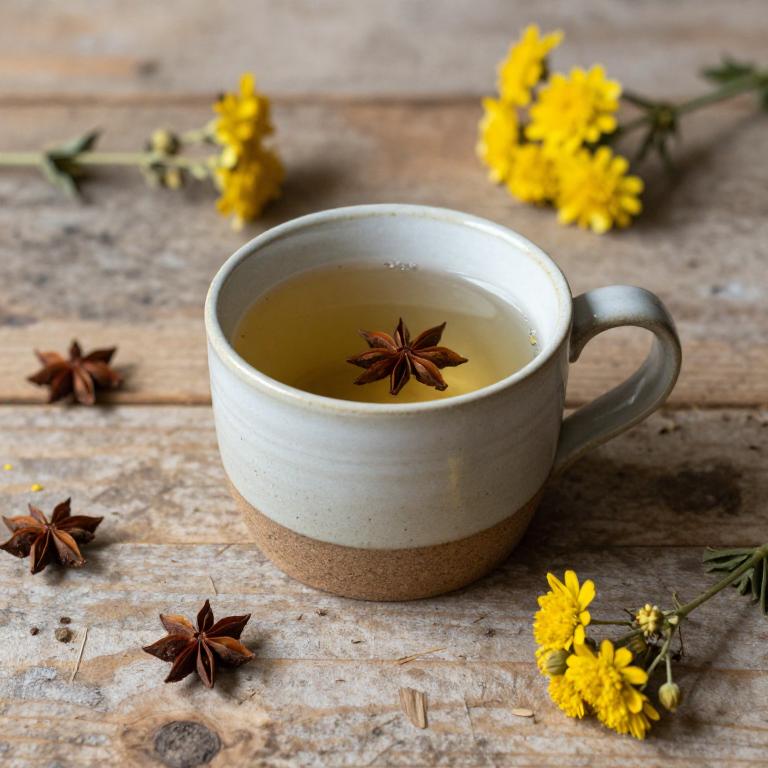
Pimpinella anisum, commonly known as anise, is a traditional herb often used in herbal teas to alleviate symptoms of premenstrual syndrome (PMS).
The essential oils in anise, particularly anethole, are believed to have mild sedative and antispasmodic properties that can help reduce bloating, cramping, and mood swings associated with PMS. Studies suggest that anise tea may support hormonal balance and ease digestive discomfort, making it a gentle option for women seeking natural relief. While it is generally considered safe, it is advisable to consult a healthcare provider before using anise tea, especially during pregnancy or if taking other medications.
Incorporating anise herbal tea into a holistic approach to managing PMS can offer a soothing and supportive remedy for many women.
10. Rosemary (Rosmarinus officinalis)

Rosmarinus officinalis, commonly known as rosemary, is a popular herb used in herbal teas to help alleviate symptoms of premenstrual syndrome (PMS).
The essential oils and compounds found in rosemary, such as rosmarinic acid and cineole, are believed to have anti-inflammatory and mood-regulating properties that may ease PMS-related discomfort. Drinking rosemary tea can help reduce bloating, irritability, and fatigue often associated with the menstrual cycle. Its warming effects may also promote relaxation and improve circulation, supporting overall well-being during the premenstrual phase.
However, it is advisable to consult a healthcare professional before using rosemary tea, especially for those with existing medical conditions or who are pregnant.